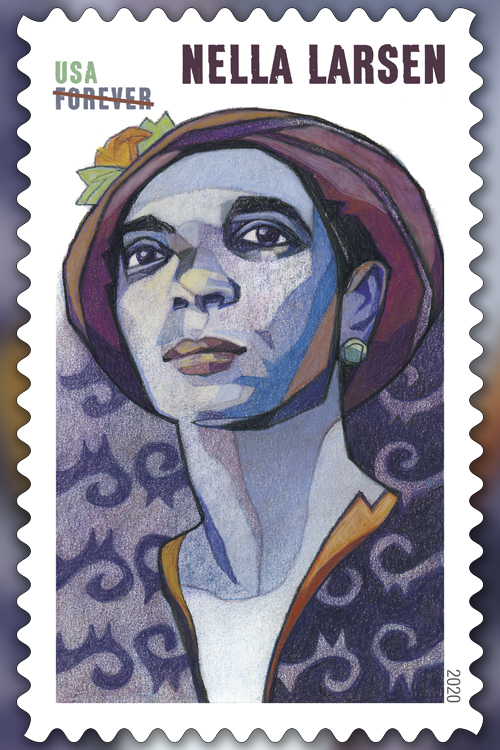One of the most important novelists of the Harlem Renaissance, Nella Larsen challenged conventional thinking, producing works that continue to invite interpretations from previously neglected points of view.
Larsen (1891-1964) is one of four African American literary figures who’ll be featured on Voices of the Harlem Renaissance, a stamp pane that USPS will release this week to honor one of the great artistic and literary movements in American history.
Larsen was born in Chicago. Her mother was from Denmark, and her father is believed to have been from the West Indies.
Larsen’s mother later married a white immigrant, and her new family apparently rejected Larsen, prompting her to cultivate the search for belonging and independence that characterized her life and work.
Before becoming a writer, Larsen worked as a nurse and a librarian, a job that led to her penning articles for an African American children’s magazine.
In 1928, Larsen published her debut novel, “Quicksand,” which tells the story of a mixed-race woman whose individuality and enthusiasm are stifled no matter which side of the color line she inhabits. With opening chapters based loosely on Larsen’s own life, “Quicksand” received praise for its objectivity and its focus on individuals rather than classes.
A second novel, “Passing,” was published in 1929 and also focuses on a mixed-race heroine. By looking at the risks and dangers of the phenomenon of “passing” as white and exploring the complex ways African Americans at the time both disapproved of it and condoned it, the novel offers a layered picture of racial perceptions that defies many of the standard notions of the time.
Larsen received a Guggenheim Fellowship and other prestigious awards for her work, but she eventually returned to her previous career as a nurse.
She died in New York City.
After decades of obscurity, Larsen’s novels were reprinted and taught in college courses in the early 1970s, prompting a reappraisal by scholars and critics.
By the late 1990s, she was again seen as an important author whose distinctive life and genre-defying fiction offer subtle but wrenching perspectives on gender and the complexity of race relations.
This is the first of four profiles of the African American literary figures who’ll be featured on the Voices of the Harlem Renaissance stamps. Tomorrow: Alain Locke.



